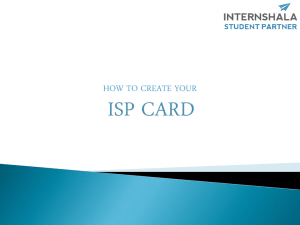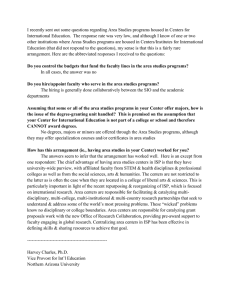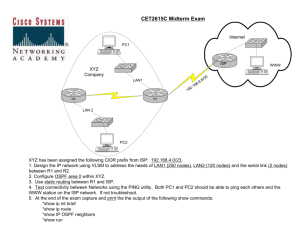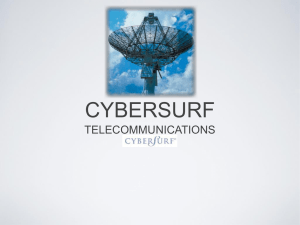LEGISLATION AND SPAM CONTROL IN BOLIVIA Dra. Gabriela Urquidi Morales
advertisement
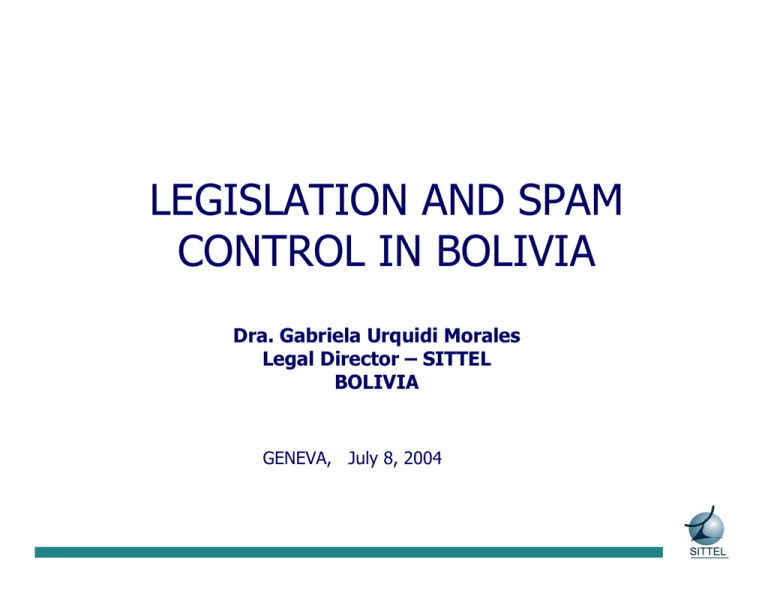
LEGISLATION AND SPAM CONTROL IN BOLIVIA Dra. Gabriela Urquidi Morales Legal Director – SITTEL BOLIVIA GENEVA, July 8, 2004 ISP Regulation • Access to Internet Service considered Value Added Service • Regulator’s functions - Grant enabling titles - Supervise correct service provision - Hear controversies and complaints - Sanction infractions to legal regulatory framework - Propose guidelines and regulations to the Executive Internet subscribers 60000 50000 40000 98.54% 30000 20000 10000 0 1996 1997 1998 1999 Dial-up 2000 On-line 2001 2002 2003 Internet Penetration 300.000 313 250.000 350 300 270.000 250 200.000 200 150.000 150 100.000 50.000 100 20.300 50 26 - 0 1999 2001 Users Users/10.000 inhab. 2003 Internet rates Dial - Up Unlimited Per-use dial-up 18 $US/month 0,01 $US/minute 0,09 $US/call ADSL 128 kbps 55 $US/month 256 kbps 100 $US/month 512 kbps 200 $US/mes Backdrop • • • • Low ICT penetration Lack of Digital Agenda Lack of Internet legislation - information crimes No Consumer Protection Law, no Competence Law, No Data Protection Law • Non-explicit telecom authority and competencies in these matters • ISP define own use of service policies and come to telecommunications regulator to seek solutions. • ISP subscribers present complaints to telecommunications regulator. Internet use policies Catalogue of prohibited abusive actions With respect to contents • Publishing or publicising harmful or illegal content. With respect to service security • Hacking server, network or user account authentication and security • Breaking system, network or server security • Interrupting Internet communications • Altering routing information Internet Use Policies (cont.) Catalogue of prohibited abusive actions: With respect to e-mail • Affecting the rights of individuals, groups, companies, or organizations • Spamming containing commercial or political propaganda without explicit and request. • Sending messages to saturate a determined user or server. Applicable Legislation Article 306 of the Regulations of the Telecommunications Law “In case of danger to the network, imminent or present, the operator of a Public Network may request, under an expedited process, permission from the Telecommunications Superintendence to cut the service of the user causing it...” Legislation Guidelines SPAM: Unsolicited commercial or political email, of a duplicating nature • As an electronic commercial tool SPAM is not ilegal per se. • Spam-associated activities are illegal • Publicity costs are charged to the ISP & user, with minimum cost for Spammers. • Other’s resources are used (servers, CPU). Preventive measures Penalties Redress Legislation Project Requisites for propaganda email: a) PUBLICITY or PUBLI in reference field. b) ADULT.PUBLI when contents are only appropriate for those over 18 c) Legal name, complete address and e-mail address of mail issuer. d) Inclusion of valid e-mail answer address to unsubscribe. e) Accurate information permitting identification of origin and transmission route. Legislation Project (cont.) Commercial mail will be considered illegal when: a) It does not comply with established requisites. b) The answer address contains a false name, or unauthorized third party domain name. c) Contains false origin and routing information d) Is sent to an addressee that requested no publicity mailings e) Contains false or deceitful information in the reference field f) Is sent in violation of ISP established policies. Legislative Project (cont.) Exceptions will be made: a) When the recipient has a commercial or preexisting relationships with the e-mail sender b) When the recipient has expressly accepted the message sent. c) When receiving electronic commercial mail is an ISP condition for granting a free account to users. Legislative Project Other dispositions: • The recipient harmed will not have the right to initiate action against the ISP transmitting unsolicited mail. • The possibility is being analysed of setting indemnities for recipient and ISP . • Penalties and sanctions will be in the hands of the telecommunications regulator. Challenges • Determine control mechanisms for illegal conducts. • Prepare good email practices guidelines. • Control and sanction Spoofing, which requires specific categorization among information crimes. • Prepare international norms agreements on Spamming. www.sittel.gov.bo
